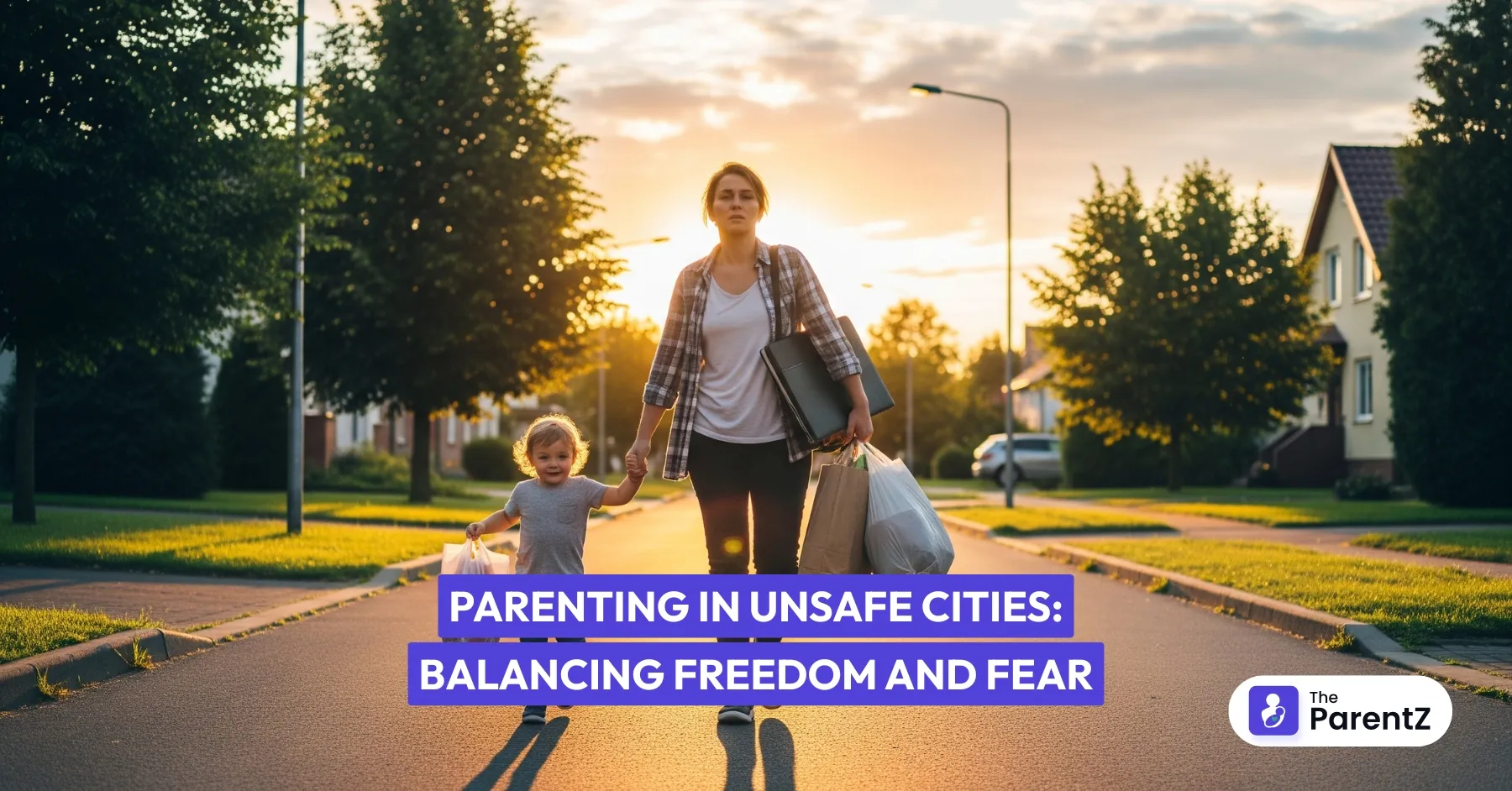The world our kids are growing up in is not safe. Every single day, we hear about children who become victims of crimes like kidnapping, road rage, assaults, bullying, and even drugs. Headlines about these things no longer shock us, but when they involve children, it’s different. That fear, that gut-wrenching, heart-stopping fear of “What if it’s my child?” stays with every parent.
No parent ever wants to imagine being on the other side of a police phone call. But we also know one thing for sure: we cannot lock our kids inside forever. We cannot protect them by building walls around them. At some point, they will step out, and when they do, they should know how to face the outside world. With wisdom. With confidence. With caution.
The harsh truth is that no city is truly safe. Some are worse than others, yes, but nowhere can we say with a straight face that kids are completely out of danger. And as parents, it is our duty to prepare them. Not by making them paranoid, not by filling them with constant fear, but by equipping them to respond if danger ever comes their way.
What “Unsafe” Really Means
When we talk about unsafe cities, we usually think about kidnappings or robberies. But the dangers go beyond that. These are some of the biggest risks children face in unsafe environments:
- Crimes Against Kids: kidnapping, abduction, assaults, road rage incidents, harassment.
- Accidents: reckless drivers, unsafe public spaces, poor lighting in neighborhoods.
- Bad Influences: drugs, alcohol, vandalism, gangs, shoplifting, and so-called “fun” crimes that ruin lives.
- Psychological Pressure: peer pressure in unsafe environments often pushes kids into situations they’re not ready for.
So when we talk about preparing kids, it means teaching them to protect themselves from both visible dangers and hidden temptations.
The Balance Between Freedom and Fear
Here’s where many parents struggle. Do you keep your child under constant watch? Do you give them total freedom? The answer lies in the balance. Total freedom without guidance is risky. Total fear without any freedom is damaging. Kids raised in cages, under constant restriction, grow up anxious, sheltered, and often rebellious.
The goal is not to remove fear. Fear has its place. Fear keeps us cautious. It makes us alert. But fear should not cripple our children. Instead, we need to teach them:
- Fear is a warning, not a prison.
- Caution is strength, not weakness.
- Knowing what to do is better than pretending danger doesn’t exist.
Practical Ways to Prepare Your Child
Here’s the raw truth: your child might face complete strangers, unsafe streets, or unhealthy influences. The best thing you can do is prepare them before the world does.
1. Teach Situational Awareness
Children should know to pay attention to their surroundings. Who’s walking behind them? Are they being followed? How do they get out of a crowded place fast? Make this a habit.
2. Build Their Confidence in Saying “No”
Predators (both strangers and peers) target kids who can’t say no. Teach your children that it’s okay to refuse. Whether it’s candy from a stranger, a ride from someone they don’t trust, or even friends pushing drugs, “No” should feel powerful, not rude.
3. Teach Basic Self-Defense
No, we’re not making our kids ninjas or superheroes. But even simple self-defense techniques, such as breaking free from a wrist grab, using their voice to draw attention, or running strategically, can save their life.
4. Everyday Objects as Protection
In unsafe cities, sometimes you don’t have help right away. Teach your kids how something as small as keys, a pen, or even a schoolbag can be used to protect themselves until they escape.
5. Emergency Numbers and Codes
Make sure your kids know the emergency helpline numbers by heart. Create a family “code word” that only you share, so if someone unsafe tries to pick them up, they’ll know whether it’s really safe.
6. Online Safety Is Just As Important
Unsafe cities don’t just mean dark streets. Sometimes the biggest danger is in their phone. Teach kids not to share personal details, not to talk to strangers online, and to tell you immediately if someone makes them uncomfortable.
7. Watch for Peer Influence
Not every danger is outside the home. Sometimes, it’s their own friend group. Kids are incredibly vulnerable to peer pressure. Drugs, shoplifting, vandalism, all these things often look “cool” in the moment. Talk openly about peer pressure. Make sure they know the consequences.
8. Strengthen Communication
The most powerful armor you can give your child is an open channel with you. If they can tell you anything without fear, they will come to you whenever they feel unsafe.
Conclusion
Parenting in unsafe cities isn’t about removing danger. That’s impossible. It’s about preparing your child to face it. If you hide them, you raise fearful kids. If you expose them recklessly, you raise vulnerable kids. The balance is teaching them freedom with responsibility, joy with caution, and confidence with awareness.
It’s not cowardice to tell your child, “Be careful. Be alert.” In fact, that’s love. Love is not just about hugs and protection; it’s about giving them the tools to survive when you’re not around.
Because the truth is, one day you won’t be. And your child deserves to step into the world, not as an easy target, not as a nervous wreck, but as someone who knows how to walk through unsafe cities with their head held high.





Be the first one to comment on this story.